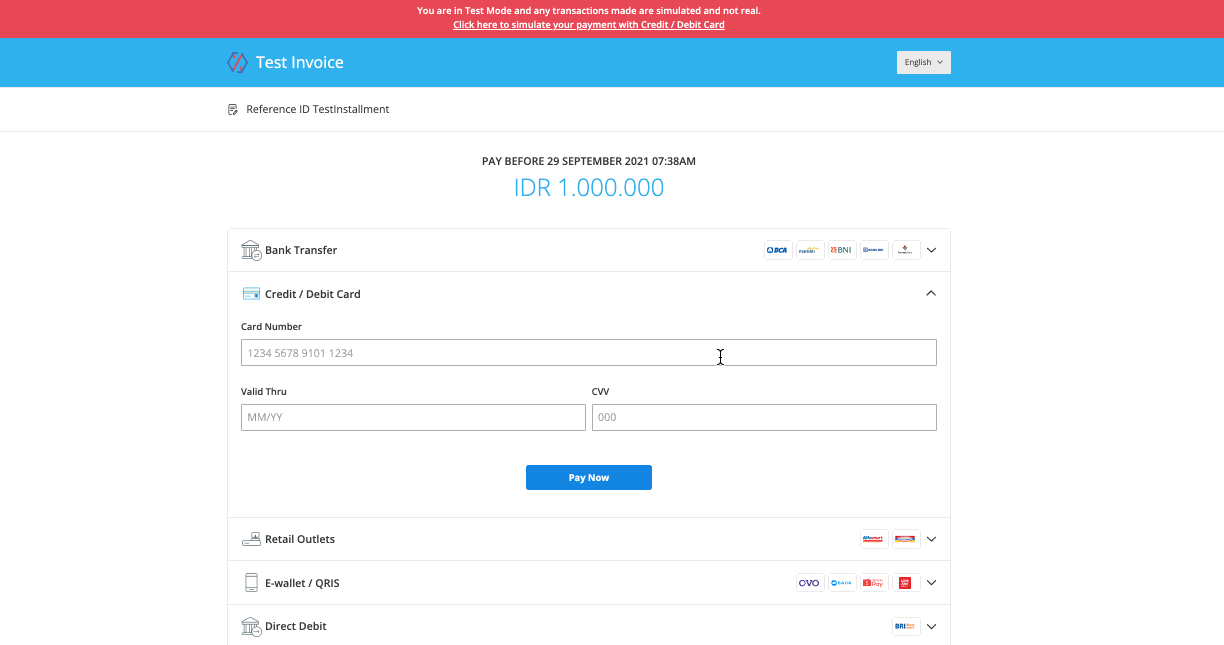Installments
INFO
These features are available in Indonesia 🇲🇨
In some countries, customers using credit or debit cards can make payments via installments, where they pay for a purchase over multiple billing statements. As the merchant, you will receive the full amount (after fee deduction) as if it were a normal Charge. The cardholder's issuing bank handles the installment payment over time. Note that the end user (cardholder), should see a charge for the full amount on their bank statement. This is expected, as the full amount is settled to the merchant (you) from the issuer, but the cardholder repays this amount over the installment tenor i.e. they need not pay the full amount during their next billing cycle.
Installment Setup Guide
Xendit’s Credit Card APIs help you to offer card payments using 0% interest installments for your customers. Details are below:
| Issuer | Country | Commercial Setup | Xendit Pricing |
|---|---|---|---|
| BNI, BRI | Indonesia | Email help@xendit.co to confirm inclusion in service agreement and pricing | 3mo (5%) / 6mo (7%) / 12mo(10%) + 2000 IDR fee per installment transaction |
| Other Banks | Indonesia | Legal agreement between you and each of these issuers allowing you to process installment transactions | Regular card processing fee in your service agreement. MDR (%) fee is between you and the issuer. |
Note:
- By default, merchants can already use BNI / BRI installment with the above installment pricing once installment feature is enabled.
- If merchants would like to have installment from other banks (aside from BRI and BNI), then merchants should have the legal agreement / create the installment MID from the desired bank first. We will then onboard the installment MID to be integrated with your Xendit account.
Enable / Disable Installment Feature
- Go to your Card settings (Payment method > Cards > Settings) or click here
- Enable / disable the installment feature by controlling the installment toggle.

User Journey - Payment using Installment
There are 2 ways for you to offer installments using Xendit to your customers:
Checkout via XenInvoice
Once your customer land to XenInvoice checkout page and choose credit card as payment channel, Xendit will return installment plan if the issuing bank match with your Xendit account setup. Below is the example of user journey via XenInvoice checkout page:

Checkout via Your Merchant UI
If you want to integrate with us using your own UI, check out our Integration and Testing - Installments page to see how you can get started!
Last Updated on 2023-05-19